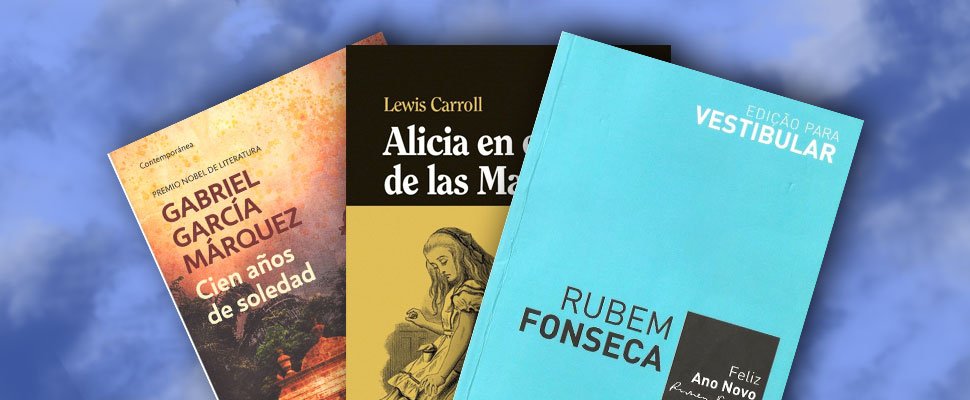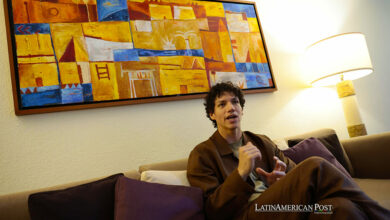Did you know that these 4 books were banned?
From China to Brazil, here we present four books that were banned for going against morals, religion, and politics

Many literary works have been banned for "attempting" against morality, religion or the sociopolitical order, or at least those are some of the reasons that have been given. Whatever the reason, the truth is that censorship occurs when a work is uncomfortable or offensive. When the book reaches the limits of what a person or a society has traced as right or wrong, either with its themes or with the language used.
Leer en español: ¿Sabías que estos 4 libros fueron prohibidos?
It is then when a work scares a State, because its content can have a great power in the readers. Hence, many books and even writers are persecuted by these censors. On November 19 of this year, CNN published an article about "a writer, surnamed Liu, but more commonly known by her pseudonym of Internet Tianyi", whose story was recently made popular through Weibo.
According to the media, Tianyi was "sentenced to 10 years in prison for writing and distributing homoerotic novels." Apparently the book by which this author was arrested under a charge of production and sale of pornography, something that is banned in the country, was considered by the police "as an example of 'obscene sexual behavior between men' with issues of 'violence , abuse, and humiliation '".
You may be interested: These 4 films were censored: find out why
The decision has arosen a debate about the severity of the sentence. However, the reality is that taken from the issue of censorship in China with respect to these novels that are very popular lately, this case is not the first and may not be the last. Here, we present some books that have been banned.
One hundred years of solitude , Gabriel García Márquez
For many it may be incomprehensiblewhy this book, written by Gabriel García Márquez, became banned. Countries like Russia, Iran, and Kuwait recently censored this work. In Russia, the censorship did not go beyond cuts or modifications of some scenes of the novel, more specifically the parties with sexual content, according to El Nacional. However, in Iran and Kuwai it was forbidden for violating morals.
In the case of Kuwait, the censorship of this and other approximately 4000 books "applies according to a law" that "prohibits any insult to Islam or to the justice of Kuwait, as well as any threat to national security or incitement to disorder or "immoral" acts ".
What you may not have known is that even in Colombia this work was censored. According to Semana magazine, this and other Márquez books were banned for a time in the coffee country, for their "explicit scenes of sex" and their "language considered coarse."
Happy New Year , Rubem Fonseca
The Brazilian Rubem Fonseca was also a victim of censorship, when in the 70s his work Happy New Year was banned in Brazil. The censorship took place during the regime of Ernesto Geisel and lasted more than 10 years. According to several media such as 20 Minutos and Ojo en Tinta, the then Minister of Justice ordered that the book be confiscated throughout the country. Although he did not give clear reasons why it was forbidden, since he apparently only read about six words, the senator Dinarti Mariz did.
According to Mariz, "what I read scared me, it made my hair stand on end, it is pornography of the lowest level, there is no page where you cannot see the darkest corners of the country. (…) Besides being censored, the author should go prisoner". The novel tells the story of low class characters who want to get out of poverty and who feel a great anger and resentment towards those people who remind them of what they lack.
This begins to generate in them the impulse to destroy, rape, and murder just for fun. This is an undoubtedly critical work that accounts for a reality that is experienced in the city: violence and social inequality.
The satanic verses , Salman Rushdie
From the Indian-British writer Salman Rushdie, this is a book that was so controversial when it was published that it was not only banned in some countries, but the author had to hide for a while. India and Iran are the countries that censored this work that is divided IGNORE INTO three chapters and that tells the story of two actors, Gibreel Faristha and Saladin Chancha. A story in which these characters are constructed as angelic and demonic figures, such as the Angel San Gabriel and Shatan or Satan, and in which Muhammad is mentioned.
The first nation was India in 1988, after Rajiv Gandhi forbade it because it "hurt the feelings of the Muslim community," as El Diario mentions. According to the same media, "a few months later, in February 1989, Ayatollah Khomeini launched a fatwa against the writer and put a price on his head for blasphemy, forcing Rushdie to remain hidden until 1998, when the Government of Iran withdrew support for the fatwa". So the censorship was for attacking religion. According to Kienyke, countries like Egypt and Afghanistan also prohibited it.
Alice in Wonderland , Lewis Carroll
That's right, even if you do not believe it, Alice in Wonderland was also banned and the reasons will surprise you. In China, for example, it was censored because it put animals at the same level as humans. "Animals should not use human language, since it is disastrous to put animals and humans at the same level," the then governor of Hunan province said in 1931, according to Cultura Colectiva.
However, as mentioned by Planeta Libros, this work has been censored long before. More specifically "since 1900 because (supposedly) it refers to different sexual fantasies and masturbation." It was also banned in 1960, on the grounds that it promoted drug use among children.
LatinAmerican Post | Diana Rojas Leal
Translated from "¿Sabías que estos 4 libros fueron prohibidos?"
Listen to this article
Listen this article





